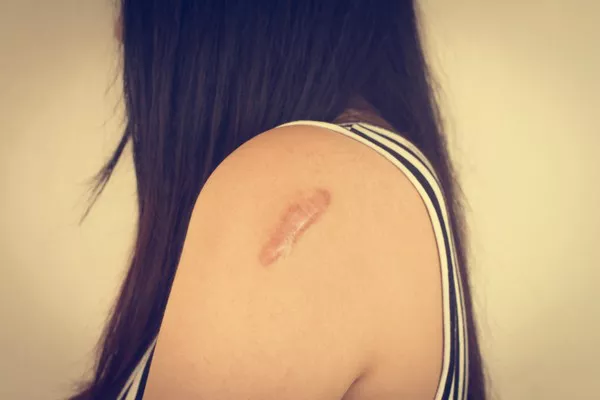Allergies are a common condition that affects millions of people worldwide. One of the most common symptoms of allergies is coughing. Coughing can be caused by a wide range of allergies, including seasonal allergies, food allergies, and allergic reactions to medication. In this article, we will explore the different types of allergies that can cause coughing and how to manage them.
Seasonal Allergies Cause Coughing
Seasonal allergies are caused by exposure to airborne allergens such as pollen, mold spores, and dust mites. These allergens can cause inflammation in the respiratory system, leading to coughing, sneezing, and other symptoms. Seasonal allergies are most common during the spring and fall months when pollen counts are high.
If you experience coughing during these seasons, it is important to identify the specific allergen that is causing your symptoms. You can do this by visiting an allergist who can perform allergy tests to determine which allergens you are sensitive to. Once you know which allergens to avoid, you can take steps to reduce your exposure and manage your symptoms.
In addition to avoiding allergens, there are several treatments available for seasonal allergies that can help relieve coughing. These include over-the-counter antihistamines and decongestants, as well as prescription medications such as corticosteroids and leukotriene modifiers. Your doctor can help you determine which treatment is best for your specific symptoms and medical history.
Food Allergies Cause Coughing
Food allergies can also cause coughing, although this is less common than other symptoms such as hives, swelling, and difficulty breathing. Coughing due to food allergies is usually caused by an allergic reaction to proteins found in certain foods such as peanuts, tree nuts, shellfish, and dairy products.
If you suspect that you have a food allergy, it is important to see an allergist for testing. Once you have been diagnosed with a food allergy, you can take steps to avoid the allergen and manage your symptoms. This may involve carrying an epinephrine auto-injector in case of a severe allergic reaction.
In addition to avoiding allergens, there are several treatments available for food allergies that can help relieve coughing. These include over-the-counter antihistamines and decongestants, as well as prescription medications such as corticosteroids and leukotriene modifiers. Your doctor can help you determine which treatment is best for your specific symptoms and medical history.
Allergic Reactions to Medication Cause Coughing
Allergic reactions to medication can also cause coughing, although this is less common than other symptoms such as hives, swelling, and difficulty breathing. Coughing due to medication allergies is usually caused by an allergic reaction to the active ingredients in the medication.
If you experience coughing after taking a medication, it is important to seek medical attention immediately. Your doctor may recommend that you stop taking the medication and switch to an alternative treatment. In severe cases, you may need to be hospitalized for treatment.
In addition to avoiding allergens, there are several treatments available for medication allergies that can help relieve coughing. These include over-the-counter antihistamines and decongestants, as well as prescription medications such as corticosteroids and leukotriene modifiers. Your doctor can help you determine which treatment is best for your specific symptoms and medical history.
Asthma and Allergies
Asthma is a chronic respiratory condition that is often triggered by allergies. In fact, up to 80% of people with asthma also have allergies. Asthma can cause coughing, wheezing, shortness of breath, and other symptoms.
If you have asthma and allergies, it is important to manage both conditions together. This may involve taking medications such as bronchodilators and corticosteroids to manage asthma symptoms, as well as allergy medications to manage allergy symptoms. Your doctor can help you develop a comprehensive treatment plan that addresses both conditions.
Managing Allergies That Cause Coughing
If you experience coughing due to allergies, there are several steps you can take to manage your symptoms. These include:
Avoiding Allergens: If you know which allergens are causing your symptoms, you can take steps to avoid them. For example, if you are allergic to pollen, you can stay indoors during peak pollen season and use air filters to reduce your exposure.
Taking Medications: Over-the-counter medications such as antihistamines and decongestants can help reduce inflammation in the respiratory system and relieve coughing. Your doctor may also prescribe medications such as corticosteroids or leukotriene modifiers to manage your symptoms.
Immunotherapy: Immunotherapy, also known as allergy shots, can help desensitize your immune system to specific allergens. This involves receiving regular injections of small amounts of the allergen over a period of several months or years.
Conclusion
Coughing is a common symptom of allergies, and it can be caused by a wide range of allergens including seasonal allergies, food allergies, and medication allergies. If you experience coughing due to allergies, it is important to identify the specific allergen that is causing your symptoms and take steps to manage your symptoms. This may involve avoiding allergens, taking medications, or undergoing immunotherapy. With the right treatment, you can manage your allergies and enjoy a better quality of life.
[inline_related_posts title=”You Might Be Interested In” title_align=”left” style=”list” number=”6″ align=”none” ids=”4159,4157,4088″ by=”categories” orderby=”rand” order=”DESC” hide_thumb=”no” thumb_right=”no” views=”no” date=”yes” grid_columns=”2″ post_type=”” tax=””]











![Which vitamins are rich in dragon fruit: [Revealed!]](https://www.dailyhealthways.com/wp-content/uploads/2023/12/nutrition1.webp)




















